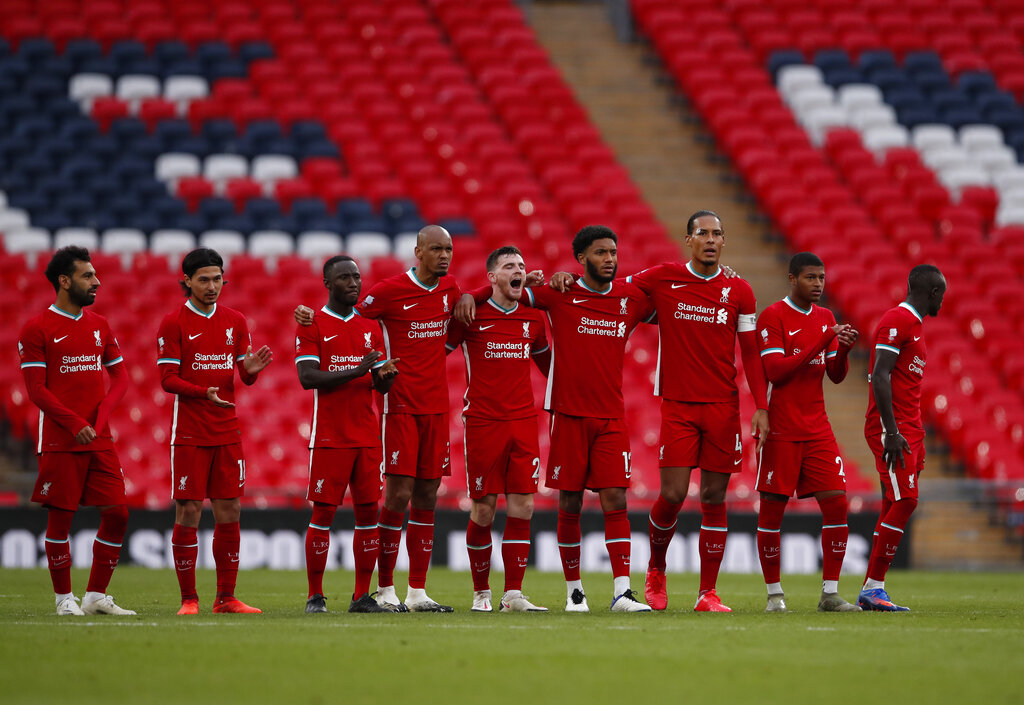US bank JPMorgan financing football Super League

FILE – Liverpool players stand on the pitch during the penalty shootout during the English FA Community Shield football match between Arsenal and Liverpool at Wembley stadium in London, Saturday, Aug. 29, 2020. (Andrew Couldridge/Pool via AP)
US investment bank JPMorgan on Monday confirmed it is financing the breakaway Super League featuring 12 of Europe’s top football clubs, which threatens to shake up the world’s biggest sport.
“I can confirm that we are financing the deal, but have no further comment at the moment,” a bank spokesman said in a statement to AFP.
Each of the clubs from England, Italy and Spain will receive a one-off payment of 3.5 billion euros ($4.2 billion).
Six Premier League teams — Liverpool, Manchester United, Arsenal, Chelsea, Manchester City and Tottenham — are involved, alongside Real Madrid, Barcelona, Atletico Madrid, Juventus, Inter Milan and AC Milan.
The clubs were immediately accused of greed and cynicism and threatened with international exile.
Organizers said in a statement that three more founding members would be announced, with a further five places up for grabs through a qualifying system each year and the inaugural edition to start as “soon as practicable”.
The Super League announcement appeared to be timed to pre-empt UEFA’s own scheduled unveiling of reforms to the Champions League on Monday, with an expansion to 36 teams from 32 and two ‘wildcard’ slots expected to be among the plans. There would be a minimum of 10 games for each team.
UEFA and the three countries’ football associations and domestic leagues described the breakaway as “cynical”.
The European Commission vice-president for promoting the European way of life said “a values-driven European model of sport based on diversity and inclusion” must be defended.
EU commissioner Margaritis Schinas added on Twitter:
“There is no scope for reserving it for the few rich and powerful clubs who want to sever links with everything associations stand for: national leagues, promotion and relegation and support to grassroots amateur football.
“Universality, inclusion and diversity are key elements of European sport and of our European way of life.”
Schinas did not, however, announce any action to prevent the breakaway nor state that it would break any EU law.